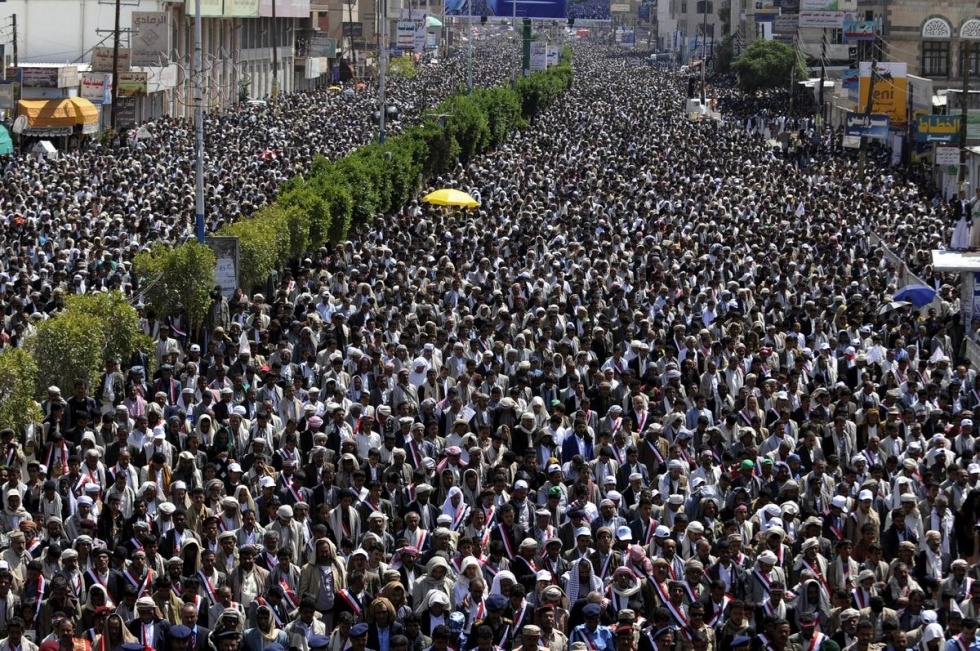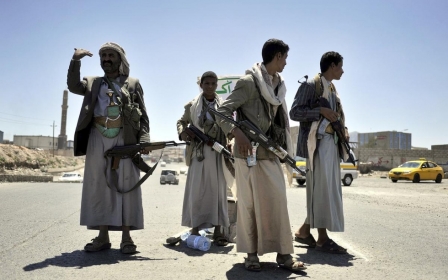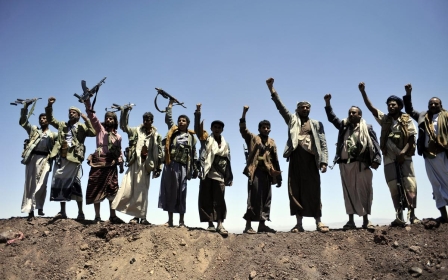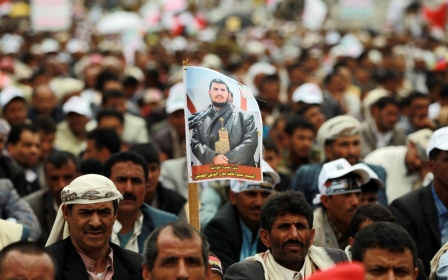Saudi warns of challenge of Yemen violence
Saudi Arabia's Prince Saud al-Faisal warns the UN that instability in Yemen threatens wider regional security

Houthis celebrate a "Friday of Victory", after seizing control of the Yemeni capital Sana'a, 26 Sept. (AA)
Published date: 13 February 2015 01:00 GMT
|
Last update: 9 years 9 months ago
Sunni-dominated Saudi Arabia has warned that neighbouring Yemen risks sliding towards further violence which could damage regional security, after Shiite rebels overran the capital last week.
Prince Saud al-Faisal, the kingdom's Foreign Minister, called at the United Nations for immediate implementation of a UN-brokered peace deal which he said had been flouted by the insurgents, local media reported on Monday.
The rebels advanced from their stronghold in northwestern mountains to the capital Sanaa last month, then seized key state installations with little or no resistance on 21 September.
Under the peace deal signed that same day, they are supposed to withdraw once President Abdrabuh Mansur Hadi names a new prime minister.
"The Republic of Yemen is facing a situation which is developing in an extremely serious way and which requires us to come together to meet this unprecedented challenge," Prince Saud was quoted as saying in remarks at the UN General Assembly in New York.
He cautioned that if a solution is not found, Yemen "could slide towards more violence" liable to affect regional and international security.
"We call on all the parties to urgently apply the accord in its totality and we exhort the international community to help Yemen by all means possible," Prince Saud said.
Saudi Arabia and other countries of the Gulf back Yemen's President Hadi, a Sunni who has warned of "foreign plots" against his country.
It was a reference to Iran, which Yemeni authorities have repeatedly accused of backing the Houthi rebels, who also appear influenced by Lebanon's powerful Tehran-backed Shiite militia Hezbollah.
Also known as Ansarullah, the rebels have battled the government for years, complaining of marginalisation.
The violence has added to instability in Yemen since an uprising that led to the ouster of autocratic president Ali Abdullah Saleh two years ago.
The peace deal aimed to put the post-Saleh transition back on track in impoverished Yemen, a key US ally in the fight against Al-Qaeda.
New MEE newsletter: Jerusalem Dispatch
Sign up to get the latest insights and analysis on Israel-Palestine, alongside Turkey Unpacked and other MEE newsletters
Middle East Eye delivers independent and unrivalled coverage and analysis of the Middle East, North Africa and beyond. To learn more about republishing this content and the associated fees, please fill out this form. More about MEE can be found here.




